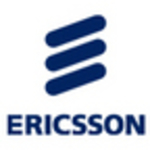How has it helped my organization?
There is no comparison with a normal broadband connection versus one that is the dedicated connection that we have. We have saved a lot of money after deploying Cisco Meraki.
What is most valuable?
We have many businesses in geographical locations, and due to this, we need it in many different locations. It has become very easy for us to deploy these products. They claim that it is zero-touch configuration. That is true. Suppose if I want to deploy this product in Manila, I don't have to have this product in my hand in the wire and I don't need to go to Manila. It's not like that.
It can be delivered to them and as soon as they plug it we can push the configuration. That is the beauty of this SD-WAN technology that we have.
The solution is helping me, not only for side-to-side connectivity but also for defining different VLANs, different networks, between the firewalls. I can do firewalling between these networks.
I can manage it very well and in a very easy way. This is from the technical perspective.
After deploying Meraki, we have a drastic fitting on connectivity because before Cisco Meraki, we used to have a physical broadband internet connection and it is very, very expensive in Dubai.
The security firewall features that are embedded in the product is very good. The security, including the internal threat protection, the IPS, or the advanced threat admin, are very good.
The hardware is okay as compared to any other product.
What needs improvement?
The advanced license is expensive. Part of the cost involved is high. If you are only a small or medium business, it may not be the best option. For branch divisions, yes. This is a very useful product and I don't have any problem with the CAPEX however, I have a problem with the OPEX as the OPEX part of the advanced license is quite expensive.
We'd like features that provide more transparency when there are issues. Right now, it's hard to get clarity on problems. We need more visibility.
For how long have I used the solution?
I've been using the solution for three years at this point.
What do I think about the stability of the solution?
The solution is quite stable. There aren't bugs or glitches. It doesn't crash or freeze.
What do I think about the scalability of the solution?
It's scalable.
We might have a plan to extend to maybe a hundred percent more sites within 2021. Hopefully, within this year, we will add almost double the size that we have right now. Currently, we have a total of 1200 employees that will double to 2400 and they each have their own devices. There are other guest users as well. There might be 4000 unique devices that need coverage.
How are customer service and technical support?
The technical support isn't always ideal. Occasionally, we are unable to understand what is happening. When we escalate the matter, the response that we get from Cisco is not satisfactory as sometimes they are depending on the log, and sometimes they are depending on what is connected to a device, for example, and any cascaded device connected to it. They will say that maybe it is because of the device that it's connected on. They seem to have difficulty pinpointing the issue at hand.
Which solution did I use previously and why did I switch?
Before using Meraki, we had the 1900 series of Cisco, and before we were using it with a DMVPN. This was the technology that was there before. We've always used Cisco.
How was the initial setup?
The initial setup is straightforward. However, it depends on how you are setting it up. There are companies that do a very basic setup, and with a basic setup, anyone can do it. Even if you are not a technical person you can do this. It's very, very easy with zero-touch configuration.
That said, when it comes to full functionality, in our case, we are completely using all of the features. We're doing integrations and using authentication and group policies and the advanced treatment events, and firewall rules, as well as traffic shipping rules. All of these are different. It's a bit more of a complex process.
We're working with a DNS Umbrella. When it comes to that much functionality, it is not easy, actually. It's not a basic thing. You need some experts to do the installation configuration.
While they've made it pretty user-friendly, they've also made it in such a way that handicaps IT staff. YOu always have to escalate issues to Cisco to get it sorted.
Once you get over the first implementation and move to configuration, it's pretty easy.
YOu only need one person to handle the deployment process.
What about the implementation team?
I tend to handle the implementation and configuration. I'm well-versed in Cisco. I don't need a consultant or integrator to assist me.
What other advice do I have?
We are a customer and end-user.
We have an SD-WAN technology that works on Cisco Meraki with MX appliances. Then we have a core appliance, from Core/Distribution and edge. These are all HP routers.
We are using the latest version of the solution. We get automatic updates to the latest versions.
While the solution is on-premises, it can be managed on the cloud.
I would recommend the solution. I'd rate the solution at an eight out of ten.
Which deployment model are you using for this solution?
On-premises
Disclosure: My company does not have a business relationship with this vendor other than being a customer.


















